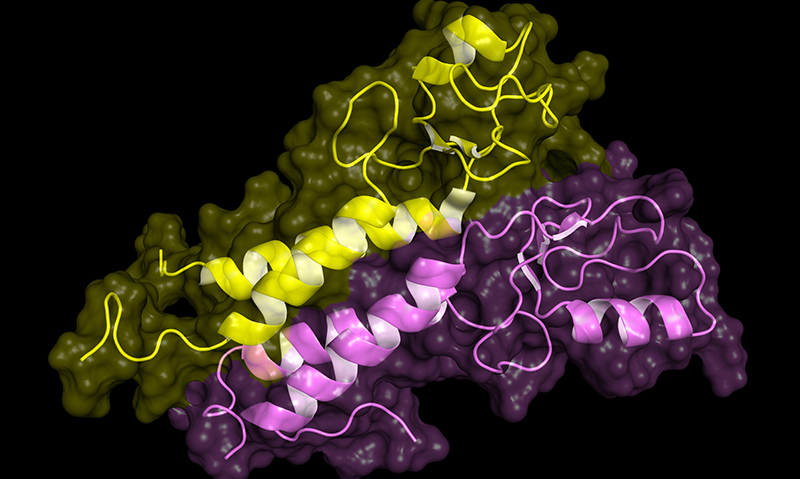ADVANCES in gene testing technology are outstripping our ability to interpret the data it collects, presenting dilemmas for clinicians and patients, according to experts.
The ability to test hundreds of genes at a time is creating terabytes of data, and making testing cheaper and therefore more accessible to patients, but also throws up so-called “variants of uncertain significance” – gene differences that may be disease-causing mutations, but could also be normal variations.
In a Clinical Focus published today in the MJA, Professor Ingrid Winship, head of the Office of Research at Melbourne Health, and Professor Melissa Southey, from the Department of Pathology at the University of Melbourne, wrote that “new genetic technology allows a panel of multiple genes to be tested for mutations in a single test”.
“This enables more women and their families to have risk assessment and risk management, in a preventive approach to predictable breast cancer … The clinical validity and utility of some of the putative breast cancer predisposition genes is not yet clear. Ethical issues warrant consideration, as multiple gene panel testing has the potential to identify secondary findings not originally sought by the test requested.”
To date, they wrote, gene testing had been conducted “as single gene tests in an iterative manner, one gene at a time, at very high cost”.
“The testing process is slow and laborious, and most test results remain uninformative.”
- Podcast with Prof Ingrid Winship and Prof Melissa Southey
- Related: MJA — Gene panel testing for hereditary breast cancer
- Related: MJA — The Cardiac Genetics Clinic: a model for multidisciplinary genomic medicine
New parallel sequencing technology had radically changed that, they wrote.
“The revolution in our capacity to conduct genetic analyses in very recent years has had a profound impact on how genetic testing services can be applied. Now, a panel of multiple genes can be screened for mutations in a single test, at considerably reduced cost.”
Dr David Amor, medical director of the Victorian Clinical Genetics Service at the Murdoch Children’s Research Institute, told MJA InSight that genetic testing was “going through a revolution”.
“The advances in the technology are a boon for diagnosis,” he said. “The pros are fairly straightforward – we can make more diagnoses at much cheaper cost – whether it’s familial cancers or cardiac disease, rare syndromes, intellectual disabilities.
“The downside is the concern about incidental, secondary findings … the results of uncertain significance.
“Patients need to be aware of those possibilities and as long as they are aware of that they can deal with it and give [informed] consent.
“You have to wonder [when unexpected results come up], whether you’ve done the family a favour or not.”
Dr Amor said that despite the uncertainties, gene testing and mapping was going through an exciting time, with the prospect of being able to make the most of results in the not too distant future.
“When you think back to when the BRCA1 and BRCA2 genes were first identified over 20 years ago, we didn’t fully understand the implications,” he said. “Now we understand them very clearly.”
A similar thing will happen as data on newly mapped genes was analysed, he said.
“We will come out of this [period of flux] in a few years. There is a lot of this going on around the world, and with each test we gather more information. [Our knowledge] will improve.”
Dr Andrew Burgess, group leader of the Cell Division Lab at the Garvan Institute, told MJA InSight that the sheer volume of data from gene panel testing was presenting the research community with practical challenges.
- Related: MJA InSight — Genetic testing “appropriate”
- Related: MJA — Is uptake of genetic testing for colorectal cancer influenced by knowledge of insurance implications?
“It’s a ridiculous amount of information,” he said. “There are terabytes of data which have to be housed securely, with appropriate redundancies. The computing power needed to process the gigabytes of information from each patient is huge.
“But the payoff could be enormous.”
As in all areas of medical technological advancement, he said, the biggest barrier was the development of regulations and guidelines surrounding the ethical use of information gleaned from gene panel testing.
“The law just isn’t coping,” he said.
Dr Burgess cited the example of a patient with health insurance discovering a predisposition to a disease via a gene screening test, and then having insurance denied because of the “pre-existing condition” clause.
“Regulations are not [yet] in place to protect the patient,” he said.
Dr Amor said he was confident the laws and guidelines surrounding gene testing would catch up with the technology.
“There are a lot of people working on this,” he said, “particularly the guidelines around informed consent.”
Winship and Southey, in the conclusion to their MJA article, wrote that although “the consequences — that is, the clinical validity and utility of many of the genes listed — are not yet clear”, the benefits of the new technologies to breast cancer patients were abundantly clear.
“The use of new genetic technology can provide an affordable, effective way of investigating the heritability of breast cancer.
“Early studies suggest that the gene panel testing approach will detect all mutations found by conventional testing and increase the diagnostic yield through analysis of more genes. This gives more women and their families the opportunity to have personalised risk assessment and risk management, in a preventive approach to predictable breast cancer.”

 more_vert
more_vert